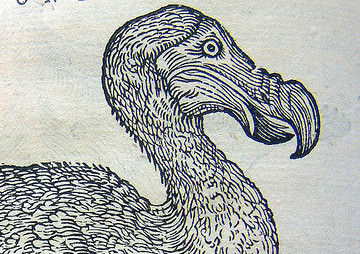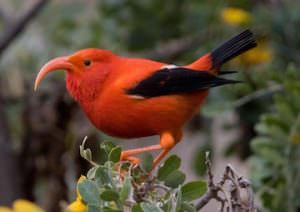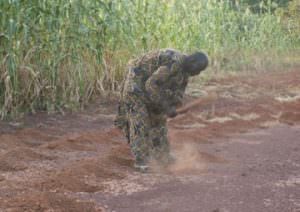Global Warming Is Accelerating Loss of Species
Human-induced climate change adds to threats vertebrates face from hunting and habitat loss, as researchers warn that modern extinction rates are exceptionally high. Andrew Eason / CC BY-SA 2.0
Andrew Eason / CC BY-SA 2.0
By Tim Radford, Climate News NetworkThis Creative Commons piece originated with Climate News Network.
LONDON — Biologists have once again confirmed their own worst fears — that humans have launched a new phase of mass extinction.
There have been five catastrophic episodes in the 500 million-year history of complex life, and humanity has now precipitated a sixth, according to a new study.
Gerardo Ceballos, a researcher in the Department of Ecology Biodiversity at the National Autonomous University of Mexico, and colleagues report in the journal Science Advances that their calculations are based on the most conservative possible estimates of extinction in recent human history.
They compared those with the calculated “background”, or normal, rate of extinction throughout evolution, and came to the conclusion that vertebrate species are slipping away into the eternal night at least 114 times faster than they would if there were no humans around to hunt them, destroy their habitats or change the climates in which they had evolved.
Potentially calamitous
All such stories fall into the “stop me if you?ve heard this one” category. For more than two decades, zoologists in particular have repeatedly warned of potential calamitous extinction rates.
They have reasoned that the pressures already driving down animal populations are likely to be made worse by global warming due to the burning of fossil fuels – either by moving the climatic zones to which the creatures are adapted faster than they can migrate, or by simply becoming too warm overall, which is something that happened 55 million years ago.
One recent study even linked atmospheric levels of carbon dioxide with the worst event of all,
“We can confidently conclude that modern extinction rates . . . suggest a mass extinction.
is under way”
But there has always been a problem of numbers – in fact, two problems of numbers. Biologists have no sure idea of how many species inhabit the planet today, and they have great difficulty establishing that any particular animal is really extinct, as opposed to just rare and difficult to identify.
So Dr Ceballos and his co-researchers went back and did the sums again, working from a recent estimate of the background rate of extinction of two mammal extinctions per 10,000 species per century.
They looked at all the written evidence for recent extinctions — the dodo of Mauritius, Steller’s sea cow, the Rodrigues giant tortoise, and all the other amphibians, birds, reptiles, fish and mammals that have slipped away to oblivion, first since 1500 and then since 1900. And the researchers then chose conservative and highly conservative calculations of loss.
Creatures vanishing
They found that, even using the most generous estimates of “normal” extinction, and the most highly conservative calculations of present loss, based on data from the 2014 International Union for Conservation of Nature’s Red List, they had evidence that creatures are now vanishing at more than 100 times the background rate.
Almost all human health and wealth is based on what grows in the ground or grazes upon it. If the loss goes on, then within as little as three human lifetimes, humanity as a species could be deprived, the researchers warn, of “many biodiversity benefits”.
With this research, they say they have placed a “lower bound” on humanity’s impact on all other living things.
They conclude: “Although biologists cannot say precisely how many species there are, or exactly how many have gone extinct in any time interval, we can confidently conclude that modern extinction rates are exceptionally high, that they are increasing, and that they suggest a mass extinction is under way — the sixth of its kind in Earth’s 4.5 billion years of history.”
Your support matters…Independent journalism is under threat and overshadowed by heavily funded mainstream media.
You can help level the playing field. Become a member.
Your tax-deductible contribution keeps us digging beneath the headlines to give you thought-provoking, investigative reporting and analysis that unearths what's really happening- without compromise.
Give today to support our courageous, independent journalists.






You need to be a supporter to comment.
There are currently no responses to this article.
Be the first to respond.